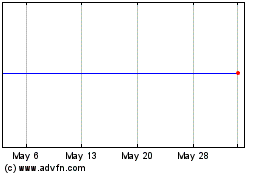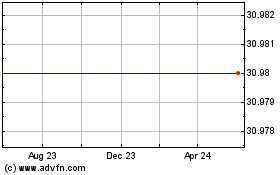Like a scorned lover, the head of Amylin Pharmaceuticals Inc.
(AMLN) felt blindsided and betrayed when longtime partner Eli Lilly
& Co. (LLY) started a new diabetes-drug relationship with a
European counterpart, recently released court documents show.
Amylin executives were further alarmed when they learned how
Lilly planned to carry out its new partnership, which Amylin is now
fighting in court. Lilly, for its part, professed indignation that
Amylin would resort to a lawsuit that hampered Lilly's ability to
market a new drug for a disease that is on the rise.
A rare behind-the-scenes glimpse of a pharmaceutical marketing
alliance gone sour emerged from court documents that were
confidential until a federal judge unsealed them late last week.
Some language may amount to legal posturing--and the case may get
settled amicably--but the documents show tension between the
companies.
Amylin and Lilly co-promote the twice-daily injected drug
Byetta, whose sales dropped 11% to $710 million for 2010 due to
increased competition. The two partners have hit roadblocks
bringing to market a once-weekly formulation of the same drug, to
be branded Bydureon. They have been partners since 2002 and
continue to work together, recently securing European regulatory
approval of Bydureon and trying for U.S. approval.
Indianapolis-based Lilly, to jump-start its diabetes franchise,
formed an alliance with Germany's Boehringer Ingelheim GmbH
(BRI.YY) in January to co-develop and commercialize several drugs,
including Tradjenta, cleared by U.S. regulators in May.
The problem is, Amylin argued, Tradjenta will compete with
Byetta and Bydureon. Amylin claimed in a federal lawsuit filed in
May that Lilly's implementation of the Boehringer deal is
anticompetitive and undercuts the Lilly-Amylin alliance. A judge
initially imposed restrictions on Lilly's marketing of Tradjenta
but lifted them last month. Lilly wants a mediator to help resolve
the dispute.
Months before the lawsuit, a communications breakdown signaled
trouble between the partners. Amylin Chief Executive Daniel
Bradbury said in a sworn declaration that he didn't learn about the
Lilly-Boehringer deal until Jan. 10, the night before Lilly
disclosed it at a health-care conference in San Francisco.
Bradbury, who helped to negotiate the original Amylin-Lilly
alliance, said he met in San Francisco with Enrique Conterno,
president of Lilly's diabetes unit. "Mr. Conterno did not comment
on how Lilly would actually sell BI's products, much less seek any
input from Amylin," Bradbury said in the court document.
Conterno did, however, tell Bradbury that Lilly remained
committed to maximizing the value of the companies' partnership,
according to Bradbury, a stance Lilly has maintained in its defense
against Amylin's lawsuit.
Lilly said in a court document that it provided advance notice
to Amylin, but it wasn't required to have Amylin involved in
negotiating the Boehringer alliance.
Bradbury later was "surprised and disturbed" to hear Lilly
executives say during a January conference call that Tradjenta
didn't compete with Byetta and therefore Lilly planned to use the
same sales force to promote both drugs, Bradbury said.
Lilly said there was no direct competition because of an
"injection barrier" in care for people with type 2
diabetes--meaning most doctors first try oral drugs and then switch
to injectables after oral options are exhausted.
Previously, Amylin argued, both companies viewed oral pills like
Tradjenta as direct competitors to Byetta. Amylin said both
companies' marketing plans and clinical studies of Byetta and
Bydureon were designed to position them as alternatives to oral
drugs, to be used as early as possible in a patient's care.
Lilly said in a court document that the "injection barrier" is a
"well-recognized market reality driven by patient and physician
preferences."
In a late February meeting, Bradbury told Conterno that he
thought Lilly was creating an "antitrust issue" by selling "two
directly competing products from its two competing alliances with
the same sales force."
In a March meeting, according to an Amylin court document, Lilly
executives said they planned to deploy more than 700 sales
representatives who would promote Tradjenta, Lilly's Humalog and
Byetta--in that order.
Lilly also said it planned to hire 325 new sales reps who would
promote Humalog and Byetta ahead of Tradjenta, according to Amylin.
Because these would be new sales reps, Amylin said, they would be
at a disadvantage to the more-experienced reps promoting
Tradjenta.
Lilly said it wouldn't enter collaborations expecting to
disparage its products and partners. The company also said it
couldn't make comparative claims between Byetta and Tradjenta,
under U.S. Food and Drug Administration rules, because the clinical
data don't exist.
In a sworn declaration, Lilly's Conterno said Lilly has no
economic incentive to steer prescriptions toward Tradjenta, and
that incentives for its sales reps reward increased prescriptions
for Byetta.
Bradbury also cited what he perceived to be radio silence from
Lilly about key developments. He said Lilly didn't tell Amylin the
FDA's target date for a decision on Tradjenta, and that Amylin
instead learned it "serendipitously from a report from the field."
Similarly, he learned of the FDA's May 2 approval of Tradjenta only
after the FDA issued a press release.
Eleven days later, Amylin filed its lawsuit. Now it was Lilly's
turn to be indignant. Lilly said in a court document that Amylin
chose not to invoke a dispute-resolution provision in the
companies' contract.
"Instead," Lilly said, "Amylin filed an antitrust lawsuit and
sought an [order] to prevent Lilly from disseminating accurate
information to physicians about a new medicine...for the treatment
of one of this country's most significant health crises,
diabetes."
Amylin officials couldn't be reached. A Lilly spokesman declined
immediate comment. Boehringer Ingelheim, the third party to the
spat, couldn't immediately be reached for comment.
-By Peter Loftus, Dow Jones Newswires; 215-982-5581;
peter.loftus@dowjones.com
Amylin Pharmaceuticals, Inc. (MM) (NASDAQ:AMLN)
Historical Stock Chart
From May 2024 to Jun 2024

Amylin Pharmaceuticals, Inc. (MM) (NASDAQ:AMLN)
Historical Stock Chart
From Jun 2023 to Jun 2024
